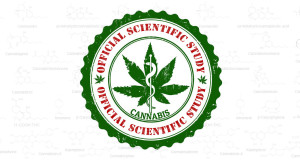ABSTRACT: Cocaine is a commonly abused illicit drug that causes significant morbidity and mortality. The most severe and common complications are seizures, ischemic strokes, myocardial infarction, and acute liver injury. Here, we demonstrated that acute cocaine intoxication promoted seizure along with acute liver damage in mice, with intense inflammatory infiltrate. ... Continue Reading
cannabidiol studies
STUDY: Why do cannabinoid receptors have more than one endogenous ligand?
ABSTRACT: The endocannabinoid system was revealed following the understanding of the mechanism of action of marijuana's major psychotropic principle, Δ9-tetrahydrocannabinol, and includes two G-protein-coupled receptors (GPCRs; the cannabinoid CB1 and CB2 receptors), their endogenous ligands (the endocannabinoids, the best studied of which are anandamide and ... Continue Reading
STUDY: Sleep abnormalities associated with alcohol, cannabis, cocaine, and opiate use: a comprehensive review
ABSTRACT: Sleep abnormalities are associated with acute and chronic use of addictive substances. Although sleep complaints associated with use and abstinence from addictive substances are widely recognized, familiarity with the underlying sleep abnormalities is often lacking, despite evidence that these sleep abnormalities may be recalcitrant and impede good outcomes. ... Continue Reading
STUDY: Cannabis and psychosis: what causes what?
ABSTRACT: Converging lines of evidence suggest that cannabinoids can produce a full range of transient schizophrenia-like positive, negative and cognitive symptoms. Cannabinoids also produce some psychophysiological deficits also known to be present in schizophrenia. It is also clear that, in individuals with an established psychotic disorder, cannabinoids can exacerbate ... Continue Reading
STUDY: Decreased hippocampal volume and increased anxiety in a transgenic mouse model expressing the human CYP2C19 gene
ABSTRACT: Selective serotonin reuptake inhibitors, tricyclic antidepressants, various psychoactive drugs, as well as endogenous steroids and cannabinoid-like compounds are metabolized by the polymorphic cytochrome P450 2C19 (CYP2C19). Absence of this enzyme has been recently shown to associate with lower levels of depressive symptoms in human subjects. To investigate ... Continue Reading

